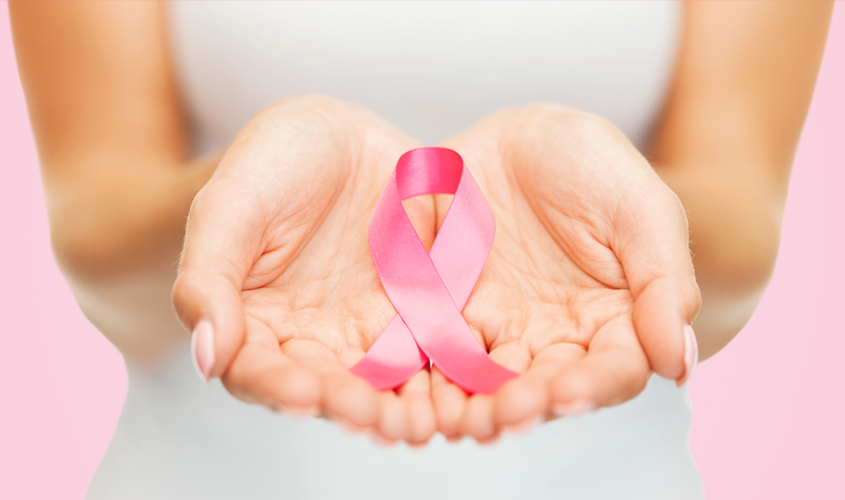Please read these 8 facts.
- About 1 in 8 U.S. women — 12.4% — will develop invasive breast cancer over the course of her lifetime.
- More than 250,000 new cases of invasive breast cancer are expected to be diagnosed in men and women in 2017. (Yes – 1 in 1,000 men can get breast cancer)
- 40,000 women are expected to die each year from breast cancer.
- About 95% of all breast cancers in the US occur in women 40 and older.
- Breast cancer is the second leading cause of death among women.
- There are 2.9 million breast cancer survivors – the largest group of all cancer survivors.
- One woman will die of breast cancer every 13 minutes in the US.
- Every 19 seconds, someone in the world is diagnosed with breast cancer.
We should be able to stop here and you’d be convinced that doing everything possible to prevent breast cancer should be a priority whether you’re a man or a woman. But it doesn’t happen that way.
We can’t promote breast cancer awareness enough.
Why don’t the facts cut through all of the hesitation, through the “it will never happen to me” beliefs, through the fears of being diagnosed, and through the “I’m too busy” attitudes?
I really don’t know. The facts didn’t cut through all of that for me either.
I can’t tell you a personal story of someone who was diligent about exams. But I can tell you my personal story about becoming the 1 in 8.
The journey began as I sat staring at the whiteboard in my oncology surgeon’s office that read mastectomy, chemotherapy, radiation and hormone therapy. She was referring to me.
The chain of events happened quickly. I was already recovering from 2 surgeries by July 9 after a May 13 diagnosis. No one wasted anytime which scared the beans out of me.
After recovering from the surgeries, I would start chemotherapy. This couldn’t begin quickly enough to suit me. At this point, I just wanted everything to be over with. In retrospect, it’s funny that suddenly I wanted fast action – as opposed to my former preference for putting things off. My 16-round chemo cycle began in August and ended in January.
Once again I waited on recovery to have yet another surgery. At least we’re making progress! Having this surgery between chemo and my radiation regimen would save me 6 months of healing time, so – of course – I was all over this quicker option. After a few more weeks of recovery, I began my 33 rounds of radiation.
My diagnosis came on May 13, 2015 and coincidentally enough, my final radiation session was on May 13, 2016. When I began this journey my oncology surgeon told me that it would take a year of my life to get my life back. She was exactly right.
Now – if this story isn’t enough to convince you that a mammogram every now and then is worth your life, I don’t know what is.
My neglect caused me to fight to get my life back. And now – more than 2 years later – I understand that it isn’t the “same life” that I got back. You’re never finished. That’s why they call what you experience with cancer a journey.
Forever, I will have scars, I will not be able to find clothes that fit, I will have little feeling in my surgery areas, less flexibility in my shoulder, tinges of arthritis in my hands, numbness in my feet, dryness issues, and hot flashes.
I will forever have the memory of chemo drugs coursing through my veins that are so dangerous they are administered by a specially trained nurse in what amounts to a hazmat suit.
I will forever remember looking at myself in the mirror with no hair on my head, no eyebrows or eyelashes or even nose hair or facial fuzz, and of using silvadene cream to ward off infection in roasted skin.
Forever, I will have the lingering fear of cancer’s return.
Here’s another fact for you.
- Getting a mammogram can help reduce the number of deaths from breast cancer by 30 to 40% among women ages 40 to 70.
October’s Breast Cancer Awareness campaign means that every woman should understand how serious the threat of breast cancer is to her – personally – and to understand how to prevent or reduce her chances of experiencing “the journey.”
Every man should understand this too, not just because 1 in 1,000 men can get breast cancer, but because men need to support the women in their lives so that they are persistent in taking care of themselves.
Basically, no one should hide their head in the sand. Use October to learn and do.
Be Smart. Be Proactive. Be Alive.






